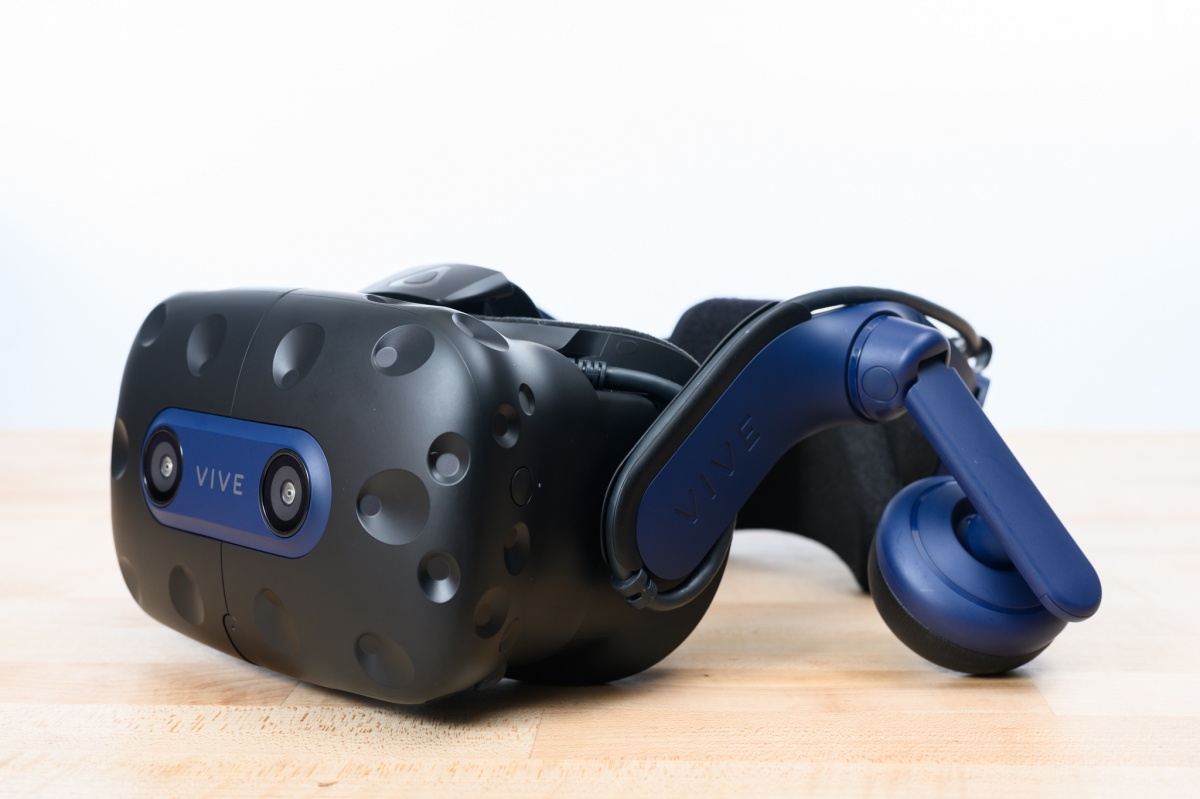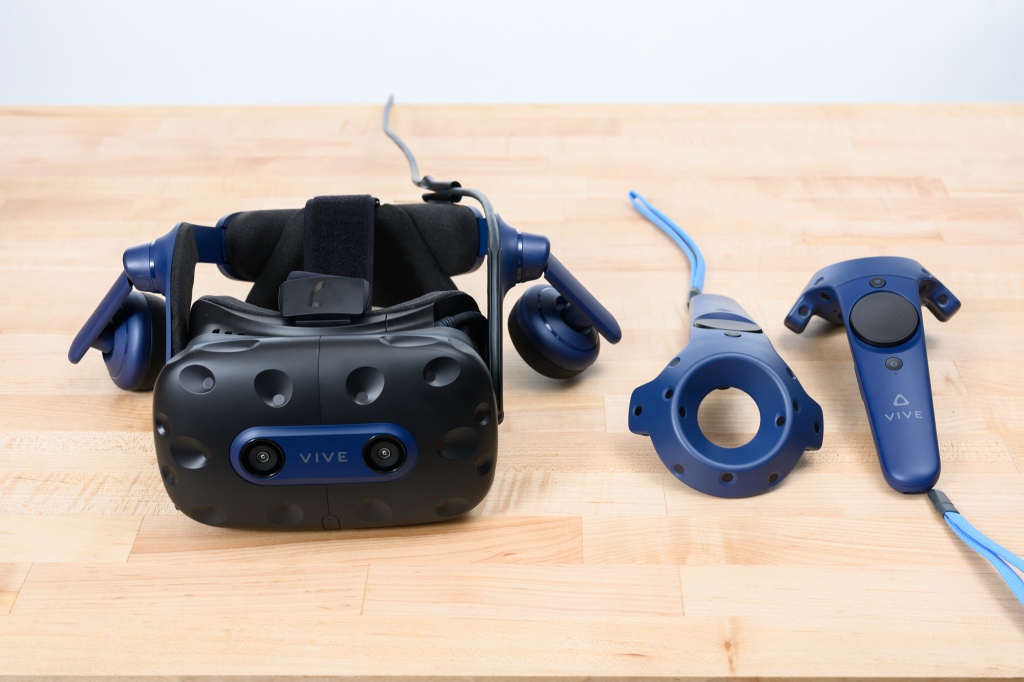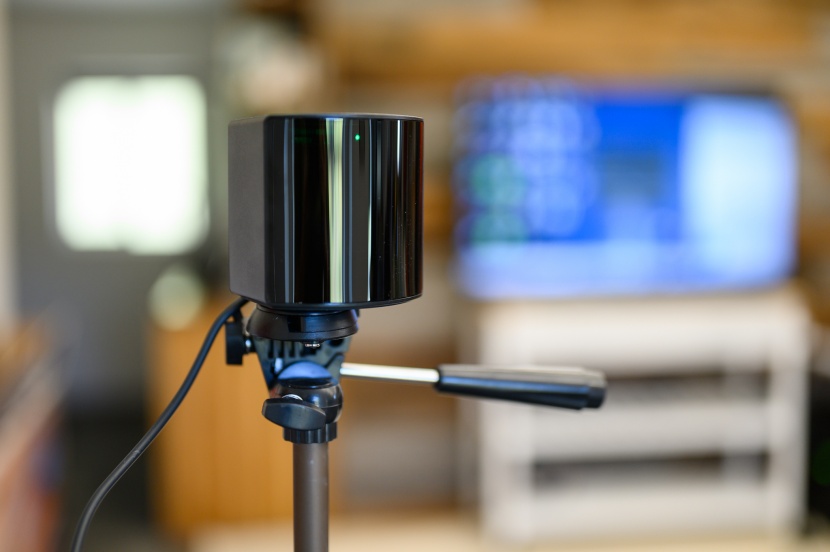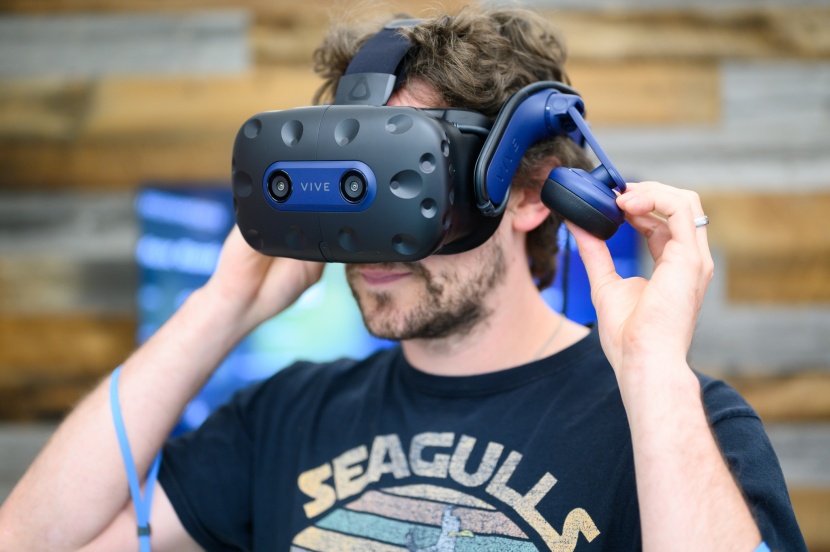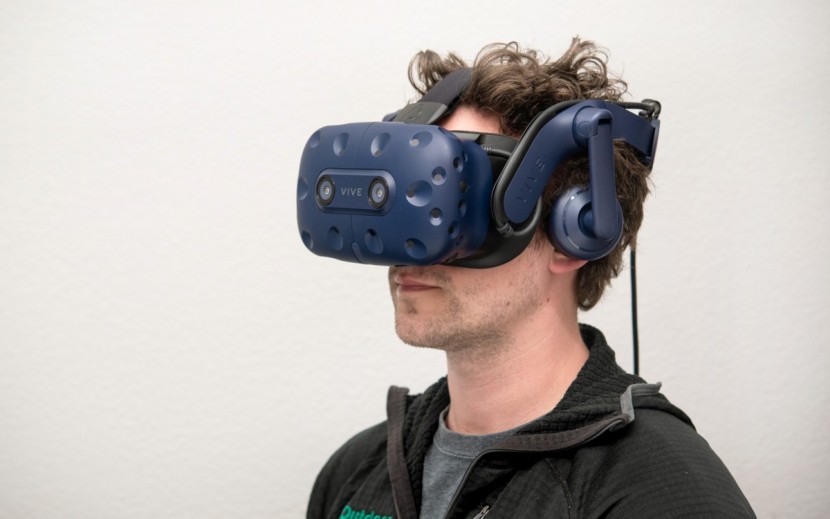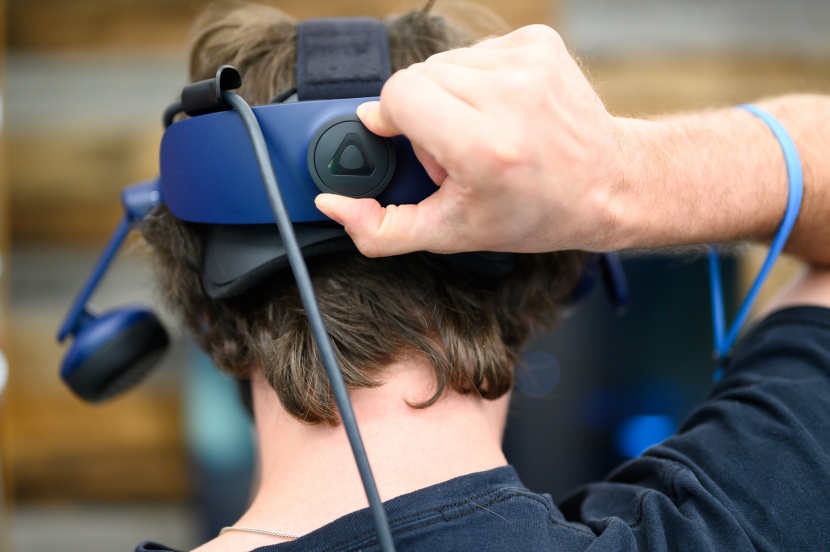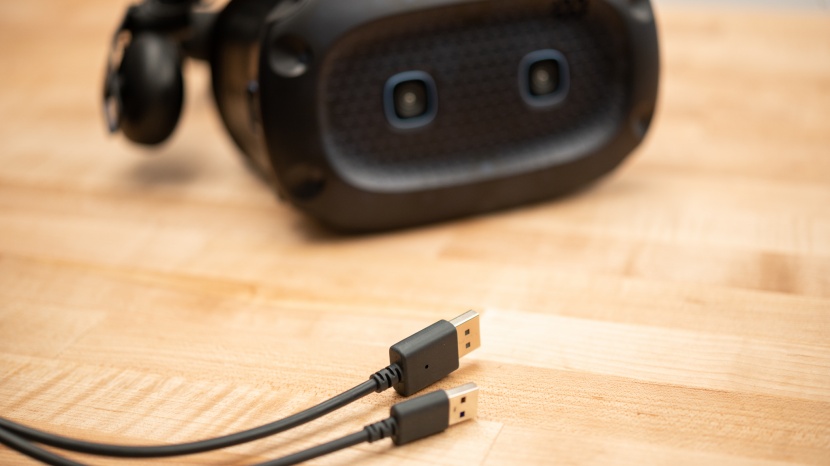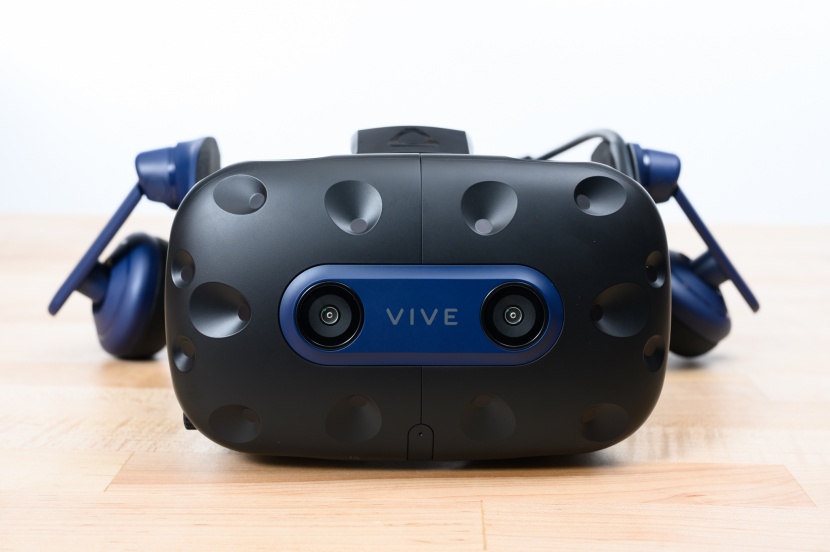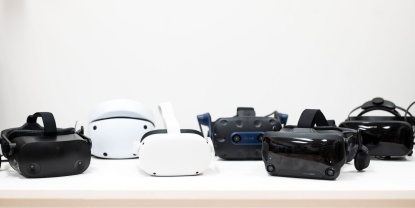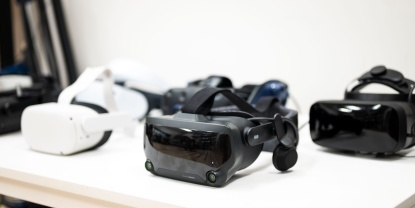Our Verdict
Compare to Similar Products
 This Product Vive Pro 2 Headset | |||||
|---|---|---|---|---|---|
| Awards | Runner Up Headset | Best Overall/Stand Alone | Working and Relaxing | ||
| Price | $799 List $699.00 at Amazon | $999 List | $550 List $499.00 at Amazon | $500 List $499.99 at Amazon | $3,699 List |
Overall Score  |
|||||
| Star Rating | |||||
| Bottom Line | This headset will appeal to users with glasses or who require top-notch tracking precision | A solid and high-performing VR headset that doesn't require a top-shelf GPU | This great value headset should excite PS5 players looking for upgraded VR immersion | One of the best standalone headsets on the VR market represents evolutionary improvements on the Quest 2 at a reasonable price | A sharp innovative (and expensive) display geared more toward browsing, work, and movie watching than gaming |
| Rating Categories | Vive Pro 2 Headset | Valve Index | PlayStation VR2 | Meta Quest 3 | Apple Vision Pro |
| Tracking (35%) | |||||
| Comfort (30%) | |||||
| Visuals (15%) | |||||
| User Friendliness (15%) | |||||
| Ease of Setup (5%) | |||||
| Specifications | Vive Pro 2 Headset | Valve Index | PlayStation VR2 | Meta Quest 3 | Apple Vision Pro |
| Measured Weight | 1.94 lbs | 1.86 lbs | 1.31 lbs | 1.13 lbs | 1.37 lbs |
| Tracking type | External Sensors | External Sensors | Built-in Cameras | Built-in Cameras | Built-in Cameras |
| Per Eye Manufacturer Resolution | 2448 x 2448 | 1440 x 1600 | 2000 x 2040 | 2064 x 2208 | 3660 x 3200 |
| IPD Adjustment | Mechanical IPD: 57 - 70mm | Mechanical IPD: 58 - 70mm | Mechanical IPD: 57 - 73mm *Rough measurement |
Mechanical IPD: 53 - 75mm | Automatic IPD: 51 - 75mm |
| Measured Horizontal Field of View | 110º | 110º | N/A | 100º | 95º |
| Measured Vertical Field of View (Up) | 32º | 40º | N/A | 35º | 25º |
| Measured Vertical Field of View (Down) | 32º | 45º | N/A | 45º | 35º |
| Manufacturer Field of View | Up to 120º | Optimized eye relief adjustment allows a typical user experience 20º more than the HTC Vive | 110º | 110º | N/A |
| Manufacturer Refresh Rate | 90, 120 Hz (only 90Hz supported via VIVE Wireless Adapter) |
80, 90, 120, 144 Hz | 90, 120 Hz | 72, 80, 90, 120Hz | 90, 96, 100Hz |
| Sound | Built-in, on or off-ear | Built-in, 37.5mm off-ear | 3.5 mm port, included earbuds Bluetooth connected via the Console |
Built-in headband 3.5 mm audio port optional |
Built-in headband |
| Connection Type to PC | - DIsplayPort (DP to mini-DP adapter included)
|
- DisplayPort 1.2
|
- USB-C | Stand alone (Optional PC Connection: Meta Quest Link Cable and Air Link ) |
Wifi with a 3rd party workaround |
| Room For Glasses | Above Average | Below average | Excellent | Average | No |
| Manufacturer Minimum PC Specs | OS: Windows 11 / Windows 10 Processor: Intel Core i5-4590 or AMD Ryzen 1500 equivalent or greater Memory: 8 GB RAM or more Video Out: DisplayPort 1.2 or higher. DisplayPort 1.4 or higher with DSC is required for Full Resolution mode. |
OS: Windows 10 Processor: Dual Core with Hyper-Threading Memory: 8 GB RAM Network: Broadband Internet connection Additional Notes: Available DisplayPort (Version 1.2) and USB (2.0+) Port Required |
N/A Uses PS5 | Optional Link Cable Setup OS: Windows 10 / Windows 11 Processor: Intel i5-4590 / AMD Ryzen 5 1500X or greater Memory: 8GB+ RAM USB Port: 1 USB Port |
N/A |
| Manufacturer Minimum GPU | NVIDIA GeForce GTX 1060 or AMD Radeon RX 480 equivalent or greater. (Not full resolution) | NVIDIA GeForce GTX 970, AMD RX480 | N/A Uses PS5 | Optional Link Cable Setup Supported GPUs: NVIDIA Titan X, NVIDIA GeForce GTX 970, NVIDIA GeForce GTX 1060 Desktop 6GB, NVIDIA GeForce GTX 1070(all), NVIDIA GeForce GTX 1080(all), NVIDIA GeForce GTX 1650 Super, NVIDIA GeForce GTX 1660, NVIDIA GeForce GTX 1660 TI, NVIDIA GeForce RTX 20-series (all), NVIDIA GeForce RTX 30-series Please Note: NVIDIA 3050 (laptop) and 3050ti GPUs are not recommended for use with Link. AMD 400 Series, AMD 500 Series, AMD 5000 Series, AMD 6000 Series, AMD Vega Series Please note: the Radeon RX 6500 is not recommended for use with Link. |
N/A |
| Manufacturer Recommended PC Specs | Better than Minimum Specs | Processor: Quad Core + Additional Notes: Available USB (3.0+) Port Required for Headset Pass-Through Camera & USB Port Support |
N/A Uses PS5 | Optional Link Cable Setup OS: Windows 10 / Windows 11 Processor: Intel i5-4590 / AMD Ryzen 5 1500X or greater Memory: 8GB+ RAM USB Port: 1 USB Port |
N/A |
| Manufacturer Recommended GPU | GeForce RTX 20 Series (Turing) or AMD Radeon 5000 (Navi) generations or newer required for Full Resolution mode. | NVIDIA GeForce GTX 1070 or better | N/A Uses PS5 | Optional Link Cable Setup Nvidia RTX 20 Series, AMD Radeon RX 6000 Series, or greater |
N/A |
| Hardware Platform Needed | PC | PC | PS5 (PlayStation 5) | Stand alone (optional tether to VR ready PC) |
Stand alone |
Our Analysis and Test Results
The Vive Pro 2 stands out for its precise tracking and ability to accommodate a wide range of PC hardware configurations. It features some of the best glasses compatibility we've ever tested in a VR headset and has among the highest screen resolutions on the market. However, it's diminished by the high price of required components and low overall comfort.
Tracking
This metric gauges the response and accuracy of headsets and motion controllers as they appear in virtual reality. The HTC Vive Pro 2 relies on two external sensors and two motion controllers with 24 built-in sensors each. Throughout our testing, we've observed superior tracking from the external sensor-based kits, and this one is no different. The Vive Pro 2 kept up with anything we could threw at it in our test applications, Beat Saber and Half-Life Alyx.
In Beat Saber, it flawlessly cut through the 360-degree songs that can trip up headset-integrated sensors, even when we went ham and flailed the controllers around trying to confuse it. It did about as well in Half-Life Alyx, where we noticed only minor blurring of in-game hands and weapons when we tried to upset the tracking with exaggerated motions. Tracking on the Vive Pro 2 is among the best available in any VR headset.
Comfort
We weighed the Vive Pro 2 at just over one pound and 15 ounces with a slight pull to the rear left side, where the cable runs down to the PC. The face mask padding is okay, if not a little on the squishy side, but the velvet fabric that covers it felt abrasive to the skin. We had to crank down the tightness to try to get this headset to stay in place during intense gaming sessions, and we suspect that's because the foam in the face mask compresses too much to support the heft of the visor properly. In an intense game like Beat Saber, where quick head-panning movements are required, the Vive Pro 2 tends to slide around on the face. This is uncomfortable because, as the headset slides around, it bashes the nose bridge and leads to loss of focus when the position of the lenses in front of your eyes changes. To make matters worse, the Vive Pro 2 heats up faster and hotter than other units, with noticeable heat radiating between the eyes after a short time in VR.
We do have one comfort-related accolade to give it, though. The Vive Pro 2 is better than most at fitting glasses inside the visor, thanks to its interior room and some ergonomic cutouts on the side meant for glasses arms. Again, this metric is subjective and will depend on your face shape and glasses.
Visuals
At over 2,400 pixels per eye, the Vive Pro 2 has among the top screen resolutions of all headsets we've tested. It's capable of a 120hz refresh rate (90hz with Vive wireless adapter) and has a field of view (FOV) listed at 120 degrees, in addition to mechanical interpupillary distance (IPD) adjustment, from 57-70mm. When put to the test in the Realovirtual Workshop app, we could see 110 degrees horizontally and around 35 degrees vertically. Again, this can depend highly on personal IPD and eye socket depth, but the Vive Pro 2 should offer a decent FOV for most people.
Although the Vive Pro 2 offers up a visual feast, it is not the most comfortable device. Extended wearing of this two-pound headset does start to feel like there is just dead weight on your face. Along with the weight, one tester found the fuzzy fabric on the Vive Pro 2 to be somewhat uncomfortable. The fuzziness against bare skin causes some discomfort, and the fabric very quickly becomes warm. Although this headset does keep cooler than others, the warm fabric is a downside. The foam on the headset, although keeping relatively cool, feels a little too squishy against the face. Our testers repeatedly felt like they needed to crank down the headset excessively to keep the foam in place.
In our testing with Beat Saber, we found the Vive Pro 2's visuals to be above average, with very little of the haze effect we've seen in some other headsets in this game. Likewise, the screen door effect (SDE), where the human eye detects the spaces between pixels, as if looking through a mesh screen, is minimal. The story is the same in the Half-Life Alyx tests. The visuals were great overall. The SDE is only noticeable if you're looking for it, but we noticed a few wavelike color shifts when we got close to light-colored objects in-game.
The Vive Pro 2 didn't perform quite as well in the Realovirtual Workshop text tests. The text was more challenging to read in this headset than much of the competition, and there was a pronounced “god ray” effect where blurry light emanated around words.
Daily Use
Setting up the Vive Pro 2 for the first time is pretty straightforward. You just put it on and hold the visor up as you tighten the ratcheting tension knob on the back until it feels snug on the face and around the sides of your head. Next, you pull the top strap to snug up the vertical fit. To get in and out of the headset, from there on out, you need to ratchet the rear dial to loosen and tighten the side strap, but you never have to mess with the top strap again. The face mask can be abrasive and too tacky to slide around your face, so dialing in a comfortable fit there is more challenging than with other VR headsets, but it will work out with some trial and error.
The mechanical IPD adjustment is dialed in from a knob on the bottom right side of the visor, which works well, but the IPD menu interface lingers a little too long on the screen and becomes annoying if you have to adjust it. The headphones on the Vive Pro 2 are the over-ear pop-out variety, which are great but must be moved up out of the way before putting the headset on. We appreciate that the physical volume and mute controls are located on the headphones rather than the visor, like other headsets. The integrated dual microphones could be better, however. We noted poor sound quality and even some crackling.
If you're sharing a headset with friends or family, the Vive Pro 2 is one of the better options. Thanks to the rear tension dial and mechanical IPD dial, ratcheting in a quick fit is simple. If needed, the top strap can be reset quickly.
Ease of Setup
The Vive Pro 2 has one of the most involved initial setups we've experienced. You'll start by downloading and signing into Steam, then ensure that your play area is free of obstructions. Next, you'll need to place and connect your external sensors and follow on-screen instructions to find and connect to your motion controllers. After all of the hardware is ready, you'll be guided through the VR boundary settings, where you set floor height and establish a safe perimeter for VR. It's all fairly straightforward but a lengthy process in all.
Minimum computer specs are average for VR, requiring an Intel i5 equivalent and a Geforce 1060 or better graphics card. However, the Vive Pro 2 VR experience will be much better with a higher-spec PC.
Should You Buy the HTC Vive Pro 2?
The HTC Vive Pro 2 has impressive tracking, nice visuals, and supports a wide range of PC configurations. It also offers a better fit for glasses than most other VR headsets. This could be a great option if you're someone with a PC that can currently meet the minimum specs for the Vive Pro 2 and who wants a headset to grow into with future PC upgrades. And, if you're concerned about fitting your glasses into VR, this headset does it better than most, but remember that the bang-for-buck could be better with Vive Pro 2, and there are more comfortable VR headsets around.
What Other VR Headset Should You Consider?
If you want to test your VR legs but don't have a VR-capable PC, check out the Meta Quest 3 or the PlayStation VR2. If you've got the PC for the job, check out the award-winning Valve Index for the best all-around VR experience.


